Mental disorders affect millions of people worldwide, impacting their emotional, psychological, and social well-being. From anxiety and depression to schizophrenia and bipolar disorder, these conditions vary widely in their nature and severity. Understanding mental disorders, their signs, symptoms, causes, prevention strategies, treatment options, diagnosis methods, and potential home remedies can help individuals and their loved ones navigate these challenges with greater awareness and resilience.
Types of Mental Disorders
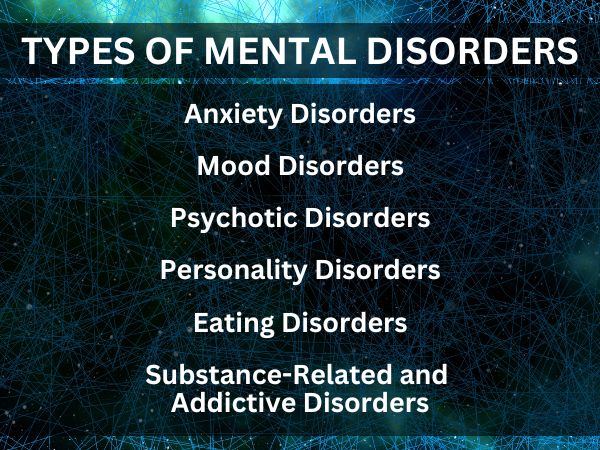
Mental disorders encompass a broad spectrum of conditions, including:
- Anxiety Disorders: Generalized Anxiety Disorder (GAD), Panic Disorder, Phobias, Obsessive-Compulsive Disorder (OCD), and Post-Traumatic Stress Disorder (PTSD).
- Mood Disorders: Major Depressive Disorder, Bipolar Disorder, Cyclothymic Disorder, and Seasonal Affective Disorder (SAD).
- Psychotic Disorders: Schizophrenia, Schizoaffective Disorder.
- Personality Disorders: Borderline Personality Disorder (BPD), Narcissistic Personality Disorder (NPD), Antisocial Personality Disorder (APD).
- Eating Disorders: Anorexia Nervosa, Bulimia Nervosa, Binge-Eating Disorder.
- Substance-Related and Addictive Disorders: Substance Abuse Disorders, Alcohol Use Disorders, Gambling Disorders.
Signs and Symptoms
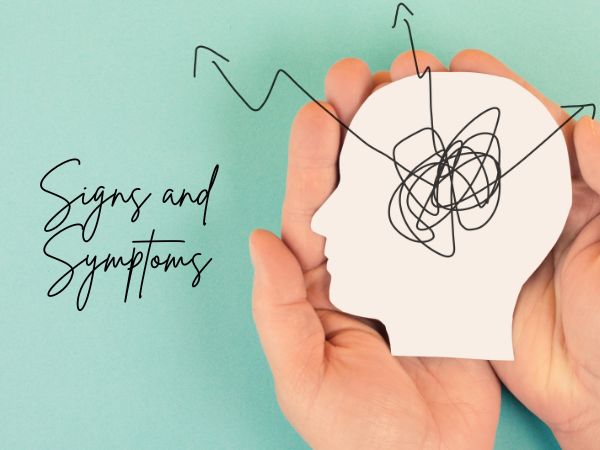
The signs and symptoms of mental disorders vary depending on the specific condition but may include:
- Persistent sadness or low mood.
- Excessive worry, fear, or nervousness.
- Changes in sleep patterns or appetite.
- Difficulty concentrating or making decisions.
- Hallucinations or delusions.
- Social withdrawal or isolation.
- Impulsive behaviors or mood swings.
Causes of Mental Disorders
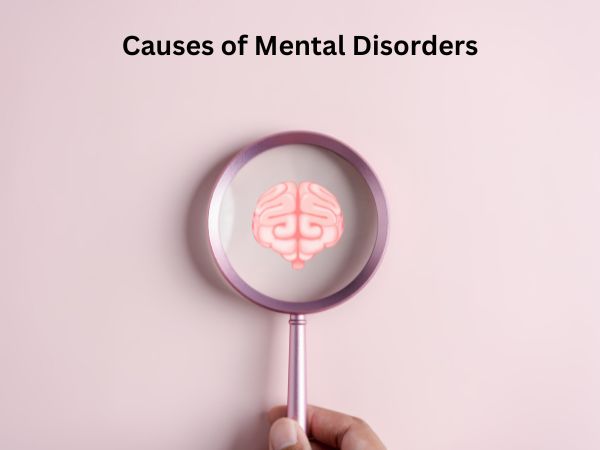
Mental disorders can result from a combination of genetic, biological, environmental, and psychological factors. These factors may include:
- Genetic predisposition or family history of mental illness.
- Chemical imbalances in the brain.
- Traumatic life experiences or abuse.
- Chronic stress or ongoing adversity.
- Substance abuse or addiction.
- Neurological disorders or brain injuries.
Prevention
While not all mental disorders are preventable, certain strategies can help reduce the risk of developing them:
- Cultivate healthy coping mechanisms for stress management.
- Maintain strong social connections and support networks.
- Adopt a balanced lifestyle with regular exercise and a nutritious diet.
- Seek professional help for early intervention and treatment.
- Address underlying issues such as trauma or substance abuse promptly.
Treatment of Mental Disorder
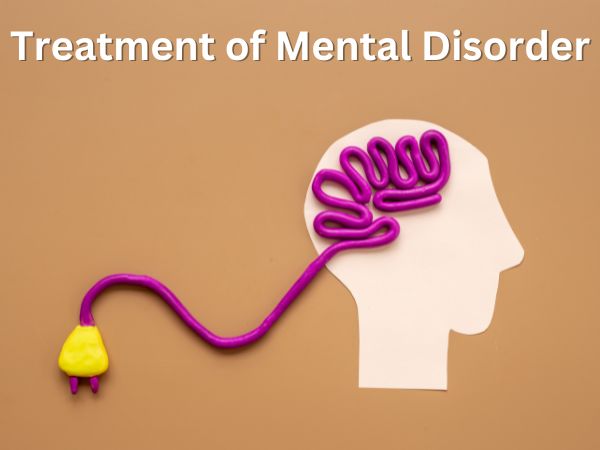
Treatment for mental disorders often involves a combination of therapies, medication, and lifestyle modifications:
- Psychotherapy: Cognitive-Behavioral Therapy (CBT), Dialectical Behavior Therapy (DBT), Interpersonal Therapy (IPT), Psychodynamic Therapy.
- Medication: Antidepressants, Anti-anxiety medications, Mood stabilizers, Antipsychotic medications.
- Supportive interventions: Support groups, Rehabilitation programs, Peer support services.
- Lifestyle changes: Regular exercise, Healthy diet, Sufficient sleep, Stress management techniques.
Diagnosis
Diagnosing mental disorders typically involves a comprehensive assessment conducted by a mental health professional, which may include:
- Clinical interviews to evaluate symptoms and medical history.
- Psychological assessments and standardized tests.
- Observation of behavior and functioning in various settings.
- Collaboration with other healthcare providers for comprehensive evaluation.
Home Remedies
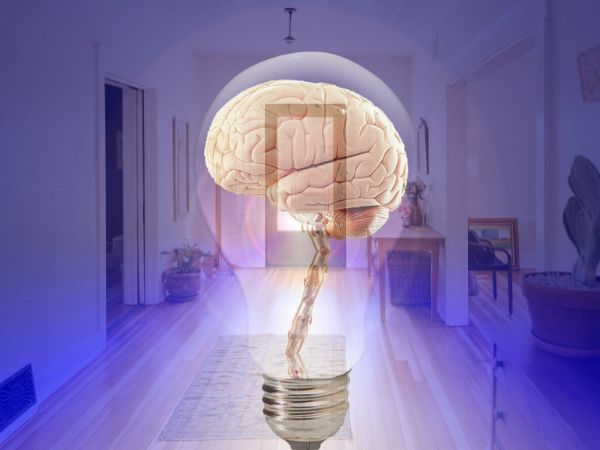
While professional treatment is crucial for managing mental disorders, certain home remedies and self-care practices can complement therapeutic interventions:
- Mindfulness meditation and relaxation techniques.
- Engaging in creative outlets such as art or music therapy.
- Maintaining a structured daily routine.
- Setting realistic goals and priorities.
- Limiting alcohol, caffeine, and substance use.
- Seeking social support from friends and family.
In conclusion, mental disorders are complex conditions that require compassionate understanding, effective treatment, and ongoing support. By recognizing the signs, addressing underlying causes, and embracing a holistic approach to wellness, individuals can take proactive steps toward healing and resilience in their journey toward mental health and well-being. If you or someone you know is struggling with a mental disorder, don’t hesitate to reach out to a qualified mental health professional for guidance and support.